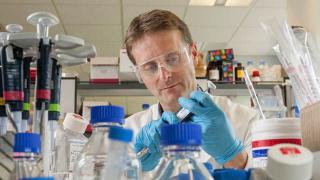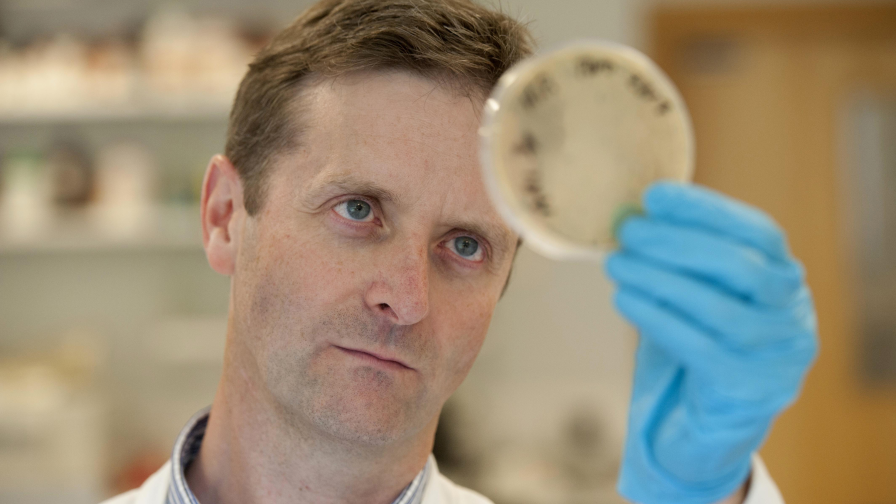Bronchiolitis Research
Published on
Updated:

Bronchiolitis Research
Premature babies are especially vulnerable to this infection that is very often caused by the respiratory syncytial virus (RSV). Little is known about why some babies develop potentially lethal infections while others have mild symptoms — and sadly there are currently no effective treatments to fight this infection. But with your support, we hope to change this.
Professor Donald Davidson and his team at the University of Edinburgh are building on their previous discovery that an anti-viral compound called cathelicidin can help protect against RSV infection. Cathelicidin is a naturally-produced substance in the body, but the amount in different people’s noses (where RSV enters to infect) varies.

© Photo: Douglas Robertson courtesy of the MRC
We believe that infants – particularly those born too soon – initially have very little cathelicidin in their noses. The absence of a ‘cathelicidin shield’ at this entry point for RSV, may increase their risk of a serious infection.
The researchers aim to investigate the protective effects of cathelicidin by analysing how the levels of cathelicidin in the nose change as a baby grows, before determining the impact of having low levels of cathelicidin.
The researchers hope to identify ways to boost cathelicidin levels by testing several different drug compounds and other agents. The team will then test the three most promising approaches to investigate their protective potential against RSV infection.
The researchers hope that their cathelicidin-boosting compounds could lead to alternative approaches to prevent or treat RSV infection in the future, helping to save more babies’ lives.
If our results are encouraging, our goal is for clinical trials within five to 10 years – to test ways to prevent or treat serious RSV infections.
Will you support this vital research?
100% of your gift will support Professor Davidson’s project that could save lives.
